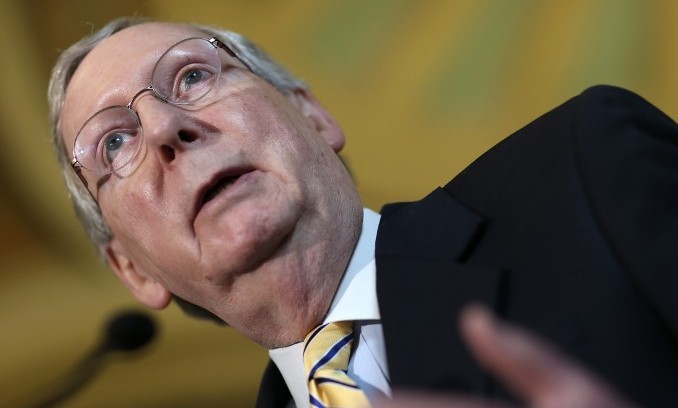“Really, we’ve got to stop it. Both sides,” said Sen. Dianne Feinstein (D-Calif.) on the Senate floor last week. “The problem is it all depends on who’s in power. And then they take advantage, so what goes around comes around…”
Senator Feinstein is right: the GOP-controlled Senate has only accepted five of President Obama’s judicial nominees this year. Contributing to the delay in confirmations is the fact that half of the 62 vacancies in the federal judiciary are from states with Republican senators, setting the stage for a partisan conflict between leaders with wildly different nominees in mind. The situation is so dire that some states have declared a judicial emergency due to excessive caseloads and not enough judges.
This predicament all boils down to partisan politics. President Obama wants to appoint judges that will promote his agenda—in areas like labor and immigration, for example—because the lower courts will help him establish a judicial legacy beyond his Supreme Court victories. Obama doesn’t want to have to experience a blow like he did last February, when his immigration reform plans were put on hold in the district court by a judge appointed by former President George W. Bush.
On the other side, the GOP wants to hold off on approving President Obama’s appointments because it would be far more beneficial to wait until 2016 when one of the GOP presidential hopefuls presumably takes office and can nominate conservative judges. Normally the filibuster is used to prevent judicial confirmation votes. The delay can be overcome with a cloture motion, which pushes the matter to a final vote, but this requires an elusive 60-vote majority. In order to address this issue, the Senate Democrats abandoned the 60-vote filibuster requirement in November 2013 for lower-court and executive-branch nominations. Widely dubbed the “nuclear option,” the new rule enabled President Obama and then Majority Leader Harry Reid to confirm 96 judicial nominees without 60-vote majorities. However, this wave of approvals abruptly ended once Republican Senator Mitch McConnell became the majority leader in January as Democrats faced a GOP-controlled Senate.
The judicial tug-of-war is cause for immediate alarm, threatening to drive away qualified nominees in what could be a never-ending battle between Republicans and Democrats, as Senator Feinstein suggested. Moreover, the holdup is affecting the federal courts’ capacity to manage their caseload, shedding light on the tangible destructiveness of partisan politics. For example, back in 2011, a man’s daughter died due to a gas can explosion, and when he tried to sue, it took an understaffed court about four years to decide his case while his medical bills piled up to $200,000. Of course, this is just one example among many of how holding up the lower courts can affect the American people. It’s a rare thing for us to be able to so easily bear witness to the consequences of governmental dysfunction.
We can’t afford to add judicial emergencies to the laundry list of problems we face as a nation. Confirming judicial nominees in a timely manner is a critical matter of maintenance, and it must be treated that way.

